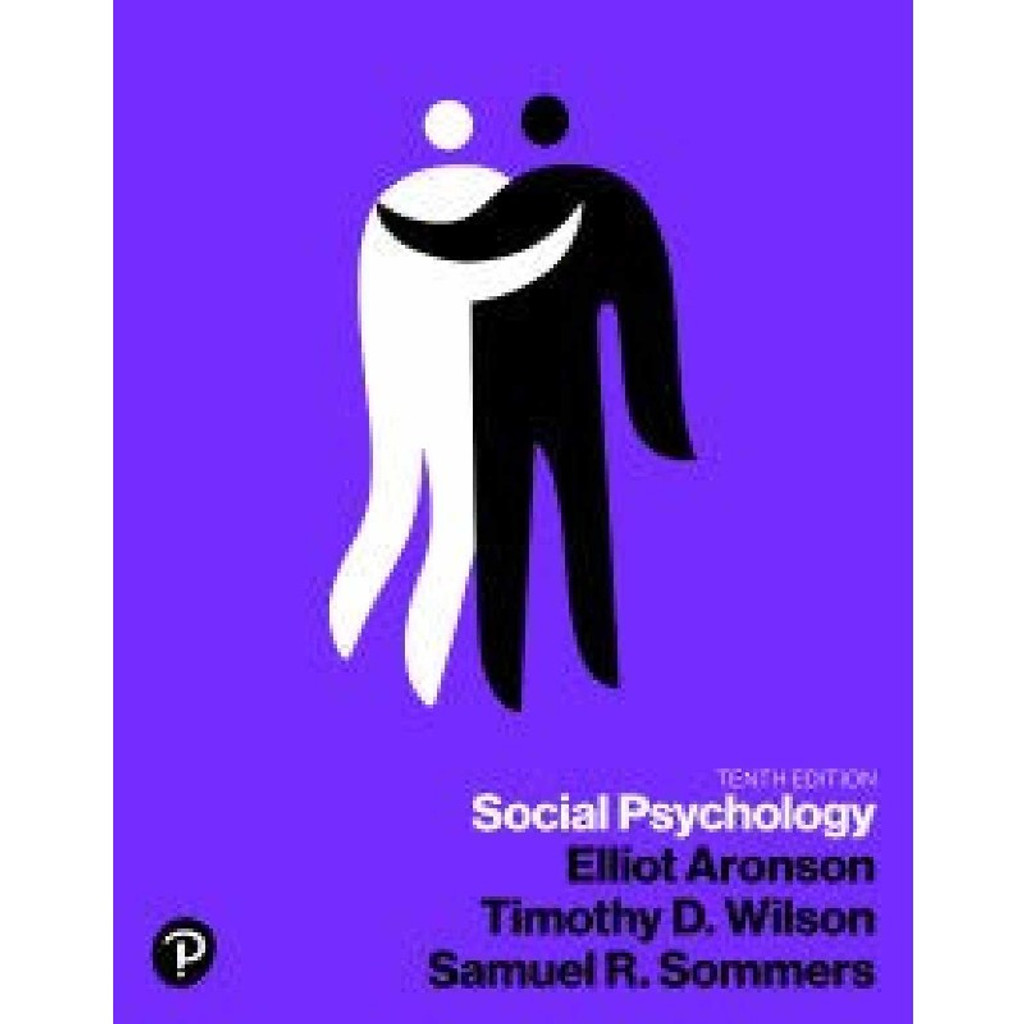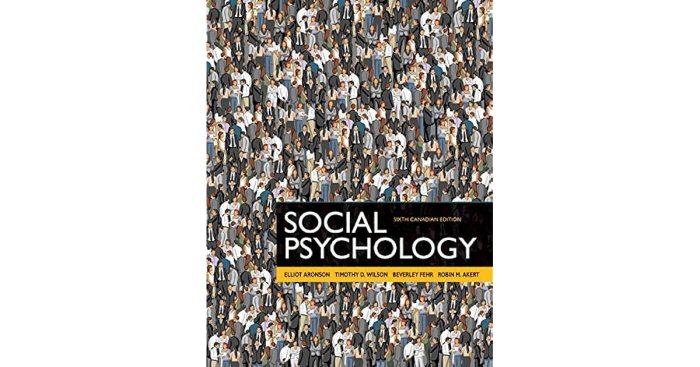Social psychology elliot aronson 11th edition – Elliot Aronson’s 11th edition of Social Psychology sets the stage for this enthralling narrative, offering readers a glimpse into a story that is rich in detail and brimming with originality from the outset. This seminal work delves into the fundamental principles of social psychology, exploring the intricate tapestry of human behavior and social dynamics.
Aronson’s groundbreaking research and thought-provoking insights provide a comprehensive understanding of the field, making this edition an indispensable resource for students and scholars alike.
Throughout the chapters, Aronson skillfully analyzes the complexities of conformity and obedience, attribution and social cognition, prejudice and discrimination, aggression and violence, social influence, and prosocial behavior. His research on the Asch conformity experiments, the self-serving bias, the fundamental attribution error, the jigsaw classroom, the contact hypothesis, and the bystander effect, among others, has significantly shaped our understanding of these core concepts.
1. Introduction to Social Psychology
Social psychology is the scientific study of how people think, feel, and behave in social situations. It examines the influence of social factors, such as culture, norms, and relationships, on individual behavior and cognition.
Elliot Aronson, a renowned social psychologist, has made significant contributions to the field. His research on conformity, attribution, and prejudice has helped to shape our understanding of social behavior.
The 11th edition of Aronson’s textbook, Social Psychology, provides a comprehensive overview of the field, incorporating the latest research and theoretical advancements.
2. Conformity and Obedience
Conformity refers to the tendency to change one’s behavior or beliefs to match those of a group. Obedience refers to the tendency to follow the orders of an authority figure.
Aronson’s research on conformity, including the Asch conformity experiments, demonstrated the power of social pressure to influence individual behavior.
Factors that influence conformity and obedience include group size, unanimity, status, and situational factors.
3. Attribution and Social Cognition
Attribution refers to the process of explaining the causes of behavior. Social cognition refers to the cognitive processes involved in social perception and judgment.
Aronson’s research on the self-serving bias and the fundamental attribution error has highlighted the biases that can influence our attributions.
Cognitive processes, such as schemas and stereotypes, play a significant role in shaping our social perceptions and judgments.
4. Prejudice and Discrimination: Social Psychology Elliot Aronson 11th Edition

Prejudice refers to negative attitudes towards a particular group of people. Discrimination refers to unfair treatment based on group membership.
Aronson’s research on the jigsaw classroom and the contact hypothesis has demonstrated the potential of intergroup contact to reduce prejudice.
Strategies for reducing prejudice and discrimination include education, contact, and legislation.
5. Aggression and Violence
Aggression refers to any behavior intended to cause harm to another person. Violence is a more extreme form of aggression that involves physical force.
Aronson’s research on the effects of frustration and media violence has highlighted the role of situational factors and social learning in aggression.
Different types of aggression include instrumental aggression, hostile aggression, and defensive aggression.
6. Social Influence

Social influence refers to the process by which people’s thoughts, feelings, and behaviors are influenced by others.
Aronson’s research on the foot-in-the-door technique and the door-in-the-face technique has demonstrated the effectiveness of different strategies for social influence.
Factors that influence the effectiveness of social influence include source credibility, message framing, and group pressure.
7. Prosocial Behavior

Prosocial behavior refers to any behavior that benefits others without any apparent reward.
Aronson’s research on the bystander effect and the good Samaritan dilemma has highlighted the factors that can influence prosocial behavior.
Different types of prosocial behavior include helping, cooperation, and altruism.
Detailed FAQs
What is the significance of Elliot Aronson’s contributions to social psychology?
Elliot Aronson is widely recognized as one of the most influential social psychologists of our time. His groundbreaking research on conformity, obedience, and prejudice has significantly advanced our understanding of these complex social phenomena.
What are the key themes explored in Aronson’s 11th edition of Social Psychology?
Aronson’s 11th edition of Social Psychology delves into a wide range of topics, including conformity and obedience, attribution and social cognition, prejudice and discrimination, aggression and violence, social influence, and prosocial behavior.
How does Aronson’s research on conformity challenge traditional notions of human behavior?
Aronson’s research on conformity, particularly his famous Asch conformity experiments, demonstrated that individuals are more likely to conform to group norms, even when they know the group is wrong. This challenges the traditional view that individuals are rational and independent actors.